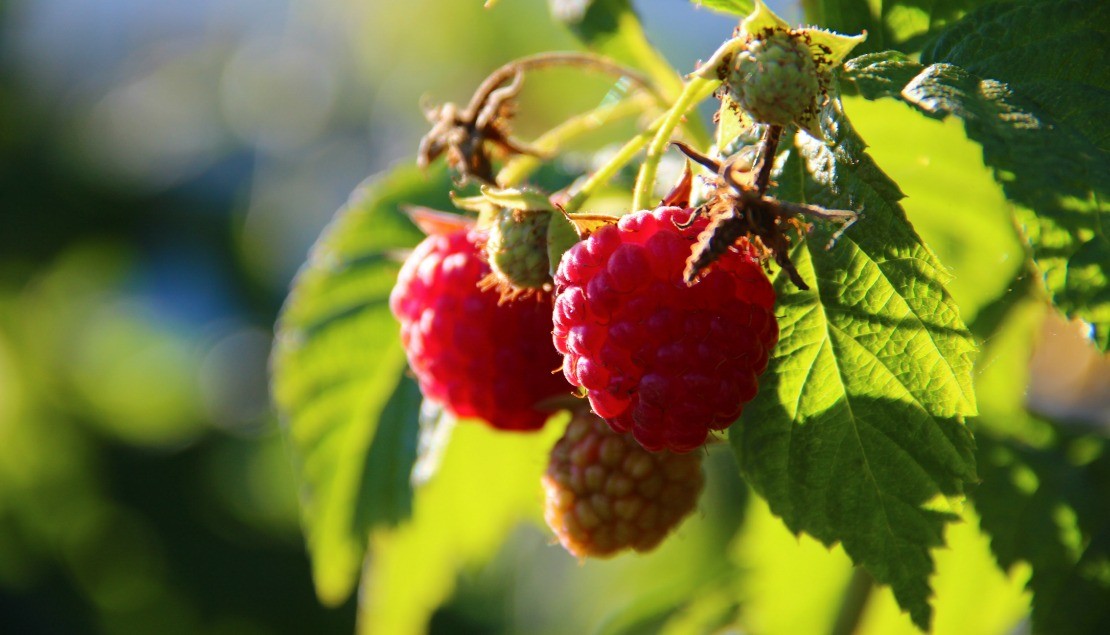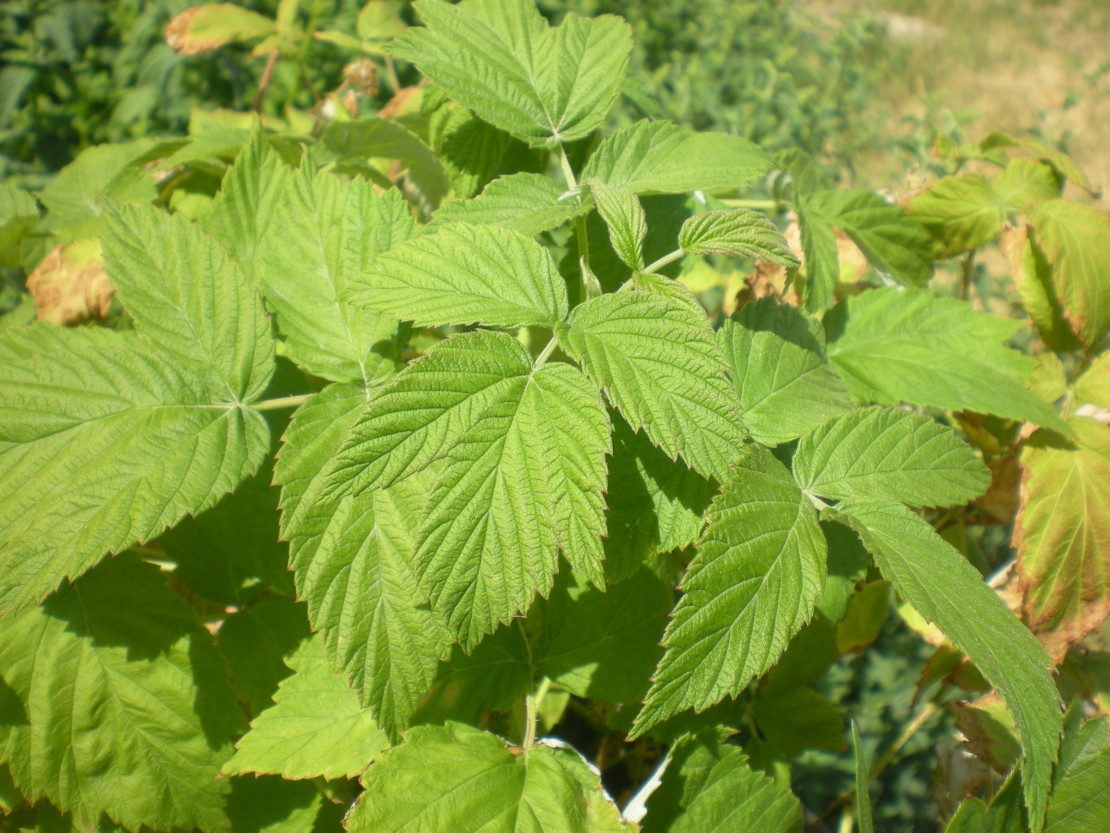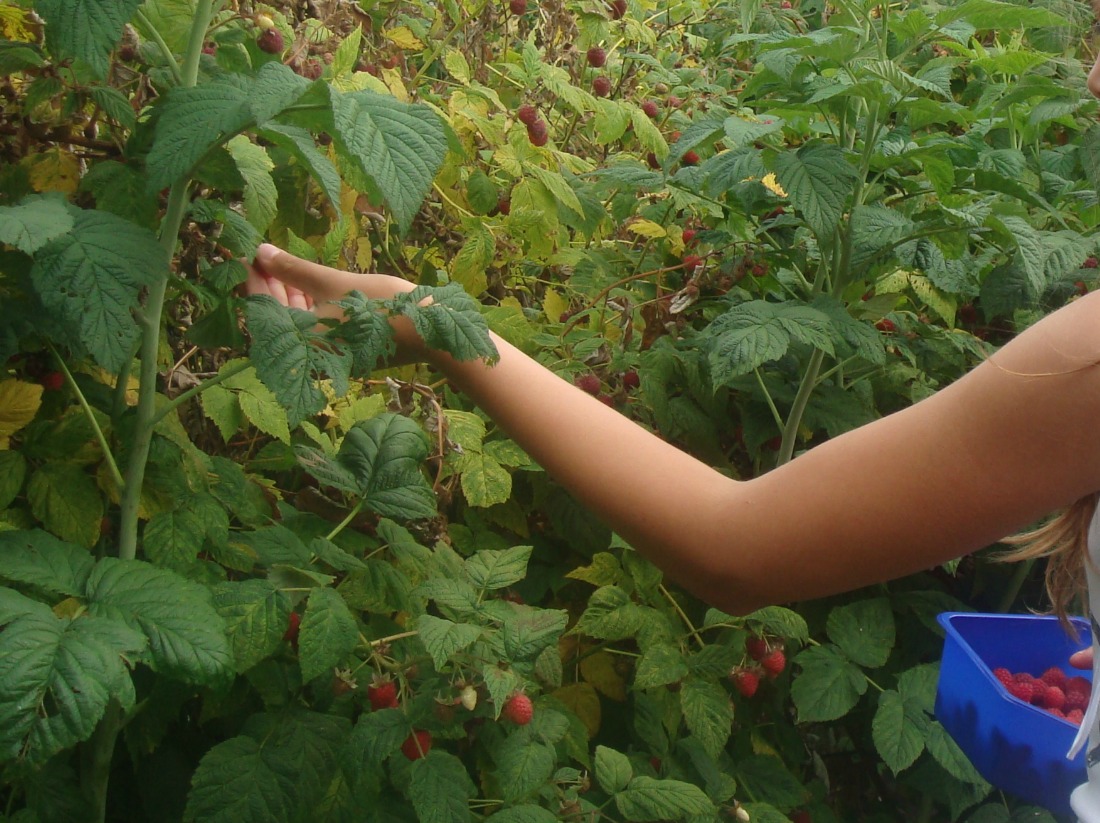
3 Raspberry Leaf Benefits For Women
When thinking of raspberry, visions of tart, delicious little berries come to mind, yet the familiar raspberry offers us much more than a wholesome snack. When we look beyond the tasty fruits of this hardy plant, we find that the raspberry leaf benefits for women are numerous, including being used as a helpful ally during pregnancy and overall support for women.
Today I want to share 3 raspberry leaf benefits with you that are great for women’s health.
Now, before I get into raspberry leaf benefits, I want to first talk about the best way to prepare raspberry for use.
To get the most out of your raspberry leaf, consider brewing it up as an infusion. Herbalist Susun Weed (2015) explains that a cup of raspberry leaf prepared as a tea has about 5 mg of calcium compared to a cup of raspberry leaf infusion which has 200 to 250 mg of calcium.
To make such an infusion, steep one ounce of raspberry leaves in a quart of just boiled water for four to eight hours. Be warned, this is a lot of dried herb. The leaves are quite fluffy and will fill the jar! Don’t despair, you are doing it right! Of course you can also make raspberry leaf tea which will still give you plenty of the raspberry’s goodness. To make, simply steep 2 tablespoons of the leaf per cup of water for at least 10 minutes, strain and enjoy. To reap the benefits of nourishing herbs, enjoy them consistently over many weeks!
3 Raspberry Leaf Benefits For Women

1. Herbal Vitamins & Minerals
When I first consider raspberry leaf benefits, the first one that comes to my mind is how nourishing it is to the body.
Nourishing herbs are considered by herbalists as a healthful food source. Herbs such as nettle, dandelion leaf, chickweed, and oatstraw have a high content of many nutritive vitamins and minerals. Raspberry leaf (Rubus idaeus, R. strigosus, R. parviflorus) is no exception! These herbs, when eaten or made into teas and infusions, have many nutrients that are made easily available to our bodies.
The calcium, iron, and magnesium found in raspberry leaf are often the very nutrients that women’s bodies need. Other vitamins and minerals present in raspberry leaves include vitamins A, B1, B2, and B3 as well as vitamins C and E, manganese, niacin, and selenium (Gladstar, 2001; MyIntyre, n.d.; Young, n.d).
Nutrient content of some of the nutrients found in one ounce of raspberry leaf:
- 408 mg calcium
- 446 mg potassium
- 106 mg magnesium
- 3.3 mg iron
- 4 mg manganese
(Bergner, 2001).
According to herbalist Rosemary Gladstar, the high iron available from raspberry can assist those dealing with anemia and is especially useful when combined with nettle to help with the depleted energy that so often accompanies anemia (Gladstar, 2001). She also explains that the high amounts of manganese in raspberry leaf may be “used by the body to produce healthy connective tissue, such as bone matrix and cartilage, and [as] an important factor in energy metabolism” (Gladstar, 2001, p. 359).

2. Menstrual Helper
Raspberry is well-known by herbalists as a uterine tonic. The leaves contain an alkaloid called fragarine which researchers have found helps to simultaneously tone and relax the uterine muscle helping to balance the muscular action of the uterus (Trickey, 1998).
Raspberry also has astringent properties used to tighten lax tissues. Together the fragarine and astringency are thought to be responsible for many of the raspberry leaf benefits for women by helping tighten and tone uterine and pelvic muscles. Hence, the infusion or tea consumed regularly throughout the cycle may be of assistance in cases of uterine prolapse and excessive menstrual bleeding. It is also used to help soothe painful muscle spasms in the uterus, helping to ease menstrual cramping (McIntyre, n.d).
3. Raspberry Leaf for Pregnancy
Perhaps the most well-known and beloved of raspberry leaf benefits is for its use during pregnancy. Raspberry leaf is used by herbalists to help promote fertility for both women and men and is thought to be especially helpful when used in combination with red clover (Weed, 1986).
During pregnancy, the nutritional content of raspberry helps to nourish the mother and baby. Further, raspberry is also used as to ease nausea and morning sickness during pregnancy, perhaps due to its astringent qualities (Bergner, 2001).

Raspberry leaf is often recommended by midwives to help prepare the uterus for an effective birth. Anne McIntyre explains that “by relaxing over-tense muscles & toning over-relaxed muscles, raspberry leaves enable the uterus to contract effectively during childbirth, easing & speeding the birth” (McIntyre, n.d., para. 7). Herbalist and midwife Aviva Romm, M.D. tells us that, “red raspberry leaf tea, 2 cups daily, is known to be safe in pregnancy, and several studies have now shown that taking it regularly in the last trimester can make labor easier, reduces the need for medical interventions in labor, and makes baby less likely to need any resuscitation” (Romm, 2015).
Postpartum, raspberry’s astringency is used to help with bleeding and swelling as well as to restore tone to the uterus. The high nutrient content may help to enrich breast milk, though over-consumption can cause supply issues due to raspberry’s astringency.
There is some discrepancy over timing and quantity of raspberry used during pregnancy. Some herbalists use raspberry throughout pregnancy while others feel that consistent use is appropriate once the second trimester has begun. If you have questions about using raspberry during pregnancy please consult your midwife, doctor, or an experienced herbalist.

How To Create Tasty Combinations for Red Raspberry
Raspberry tastes a bit like black tea and especially as an infusion maybe a bit strong for some folks. It does blend well with other herbs such as spearmint, peppermint, oatstraw, alfalfa, lemon balm, and rose hips and petals to make a delicious brew. You can also sweeten your raspberry drink with honey or maple syrup or even add juice or water if you wish. Experiment to find your favorite way to enjoy this wonderful plant!
Yummy Raspberry Blend
¼ cup dried oatstraw
¼ cup dried spearmint
¼ cup dried rose hips
Raspberry Orange Lemonade
⅓ to ½ cup of honey depending on how tart you like your lemonade
½ cup of lemon juice
½ cup of orange juice
2 cups of water, optional
Would you like to learn more about herbs? Here at the Academy, we have many wonderful opportunities for you to begin or expand your herbal learning! Please visit our course page here for more information.
REFERENCES
Bergner, Paul. (2001). Folk remedies database. Boulder, CO: Bergner Communications.
Gladstar, Rosemary. (2001). Rosemary Gladstar’s family herbal. North Adams, MA: Storey Books.
McIntyre, Anne. (n.d.) Rubus ideaus • Govariphala • Raspberry. Retrieved from http://annemcintyre.com/rubus-ideaus-%E2%80%A2-govariphala-%E2%80%A2-raspberry/
Romm, Aviva. (2015). Herbs in pregnancy: what’s safe & what’s not. Retrieved from http://avivaromm.com/herbal-medicines-in-pregnancy-safety
Trickey, Ruth. (1998). Women, hormones, & the menstrual cycle. St. Leonards, NSW: Allen & Unwin.
Weed, Susun. (2015). Red raspberry infusion with Susun Weed. Retrieved from https://www.youtube.com/watch?v=srQnX96bO4k
Weed, Susun. (1986). Wise woman herbal for the childbearing year. Woodstock, NY: Ash Tree Publishing.
Young, Cory. (n.d.). Just say no to synthetic vitamins and processed foods! Retrieved from http://www.susunweed.com/herbal_ezine/May05/healingwise.htm








